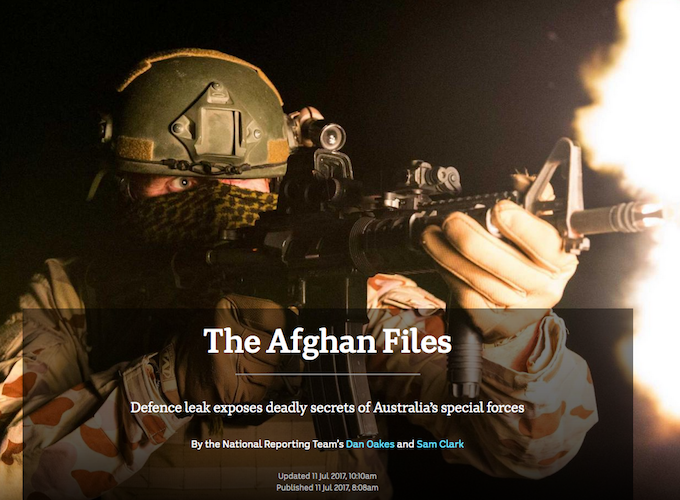
An Australian federal court decision upholding the legality of the police raid on the Sydney headquarters of the national public broadcaster ABC last June has dealt a major blow to the protection of journalists’ sources and poses a grave danger for the future of public interest journalism, says Reporters Without Borders (RSF).
In its ruling issued on February 17, the court rejected the Australian Broadcasting Corporation’s challenge to the legality of the search warrant that allowed federal police to search computers, emails and USB sticks at its headquarters on 5 June 2019.
The police were trying to identify the source for The Afghan Files reporting by ABC journalists Sam Clark and Dan Oakes in 2017 about the role of Australian special forces in the illegal killing of civilians in Afghanistan.
READ MORE: The Afghan Files: Defence leak exposes deadly secrets of Australia’s special forces
The reporters used material provided by a whistleblower within the Defence Ministry.
“If confirmed on appeal, this federal court ruling will set a disturbing legal precedent by turning investigative reporters and whistleblowers into criminals,” said Daniel Bastard, the head of RSF’s Asia-Pacific desk.
“The ABC story never compromised national security and clearly served the interests of the Australian public, who have a right to reliable and independent information freely reported by journalists.
“We call on the federal judges to guarantee this right on appeal by recognising the search warrant’s illegality.”
Ruling fraught with consequences
Under the warrant, the police were authorised to search for evidence that the two journalists had “unlawfully obtained military information” and “dishonestly received stolen property”.
The supposedly stolen property was the leaked documents that exposed the illegal killings reported in The Afghan Files.
The federal police raid on ABC was all the more shocking for coming just one day after a raid on News Corp political editor Annika Smethurst’s home in Canberra. The timing of the two raids was widely seen as a deliberate attempt to intimidate investigative journalists.
The judicial precedents set by these two cases are particularly fraught with consequences inasmuch as Australia’s constitutional law contains no guarantees for press freedom.












































